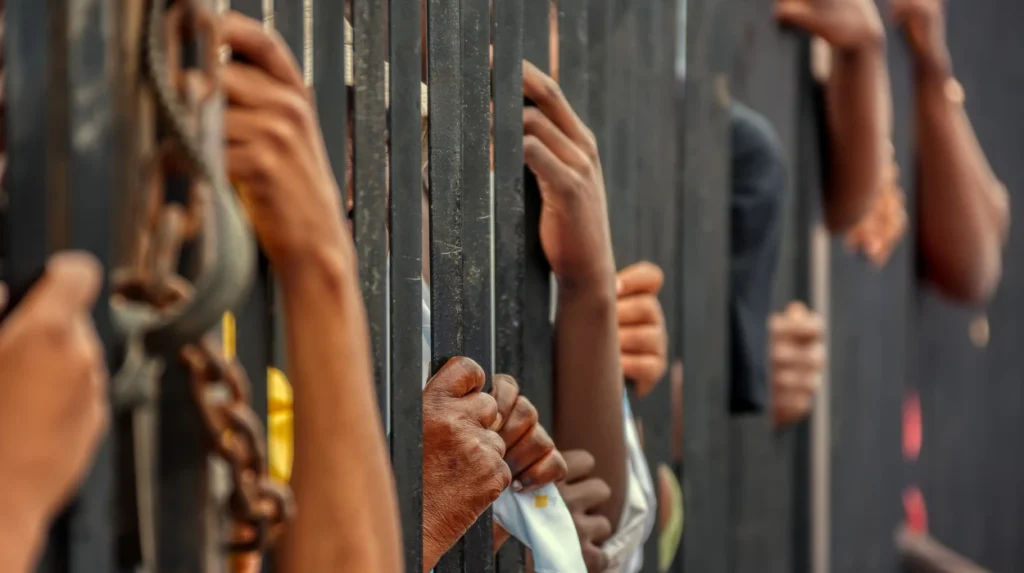There is heated debate and criticism about Saudi Arabia hosting the FIFA World Cup in 2034. Sports, infrastructure, and tourism have dominated investments of the Saudi Arabian state under Vision 2030, whereas their dismal human rights record has been left far behind. There are objections from human rights organizations, activists, and even football fans. This is why Saudi Arabia is not ideal for hosting the FIFA World Cup in 2034 because it continues to tread on people’s rights: freedom of speech, women’s rights, and the rights of migrant workers working in the country.
Restraint on Freedom of Speech and Expression
Freedom of speech and expression is one of the most essential issues concerning Saudi Arabia as a host of the World Cup. The kingdom has strong censorship laws and drastic punishment for those speaking against the government. Reporters, bloggers, and activists have been arrested and sent to prison for their political opinions.
Harmful issues involve the limitation of journalists while covering abundantly during such a global event as the FIFA World Cup. The values of FIFA uphold openness and inclusion. The record of Saudi Arabia on freedom of the press will never harmonize with such principles. In 2022, at least 15 people were imprisoned for between 10 and 45 years for peaceful online activities, including the longest sentence ever handed down to a Saudi woman for such activities.
Discrimination Against Women
Although the country has undergone reforms, women’s rights are still limited. The country has achieved partial success on its journey as women are permitted to drive and watch sports, but it is deeply discriminatory toward gender. Women still have to attain a no-objection certificate from a male guardian before marrying or leaving the country. The women activists are tortured in jails for demanding their basic rights.
The separation between men and women can easily be seen in most departments and places of public interest. Saudi Arabia ranked 126th out of 146 countries in the Global Gender Gap Report of the World Economic Forum. It means there is still some persistent gender inequality in the country.
Forced Labor of Migrant Workers
Most of these workers come from South Asia and Africa. Their conditions are too exploitative, and many are housed in crowded labor camps with poor sanitation and few rights. Employers frequently withhold wages and confiscate passports, trapping workers in forced labor. Workplace accidents are common and often result in deaths caused by hazardous conditions.
Since the construction of NEOM started, an estimated 21,000 migrant workers have died, of whom more than 14,000 are Indian. Many are subjected to extreme conditions, including working up to 84 hours a week, when the law allows only 60 hours a week.
No Due Process and Cruel Punishments
The legal system in Saudi Arabia has been described as brutal because it practices public executions, floggings, and amputations. In this country, the application of Sharia law is often a literal interpretation that would often lead to severe sentences being imposed for very minor infractions. Political dissent, blasphemy, or even drug offenses can be considered capital crimes.
The procedure of trials can often be opaque. Defendants are frequently convicted without proper legal defense. Torture and coerced confessions in the criminal justice system are frequent. Over the last few years, Saudi Arabia has increased executions highly. In 2024, for instance, the country executed 345 people, which was nearly double that of the 172 recorded executions in 20231. In 2022, 196 people were executed, making it the most in three decades.
Suppressed LGBTQ Rights
Same-sex relationships are prohibited in Saudi Arabia. Prison or even the death penalty is the outcome. The state has no support for LGBTQ+ rights, making it a dangerous place for LGBTQ+ football fans, players, and officials. The members of the community are persecuted and harassed, and some have been given death penalties. There is no anti-discrimination law protecting the members. Pride parades and lectures on LGBTQ+ rights are also not allowed.
FIFA says it supports the participation of LGBTQ+ individuals in football but is handing the World Cup to a country that criminalizes them. Sportswashing and Reputation Cleansing It has spent billions of dollars on sports as part of its new policy to raise its international stature, a move described as “sportswashing.” Sportswashing refers to the act of diverting one’s attention through large sporting events when one lapses into such abuses as human rights.
Ethical Responsibilities of FIFA
FIFA has often been criticized over the years, as the organization has preferred financial issues to take precedence over morality. A recent controversial point about the granting of the 2022 World Cup to Qatar is the epitome of such a step. The hosting of the 2034 World Cup in Saudi Arabia raises severe questions about FIFA’s seriousness with human rights. It has a Human Rights Policy which obligates host countries to respect basic freedoms. It could symbolize corruption and nepotism in granting the World Cup without any bidding process to Saudi Arabia
Conclusion
Human rights violations record disqualifies Saudi Arabia from holding the FIFA World Cup 2034 Suppression of free speech, gender-based discrimination, exploitation of migrant workers, Draconian judicial punishments, and persecution of the LGBTQ+ community are all principles that FIFA represents against. It is not proper for FIFA to hand a prize that is hosting a future World Cup over to a nation that is perpetually guilty of human rights abuses. If FIFA is concerned about the integrity of the sport and its global impact, it should reconsider its decision and give human rights precedence over financial gain.

